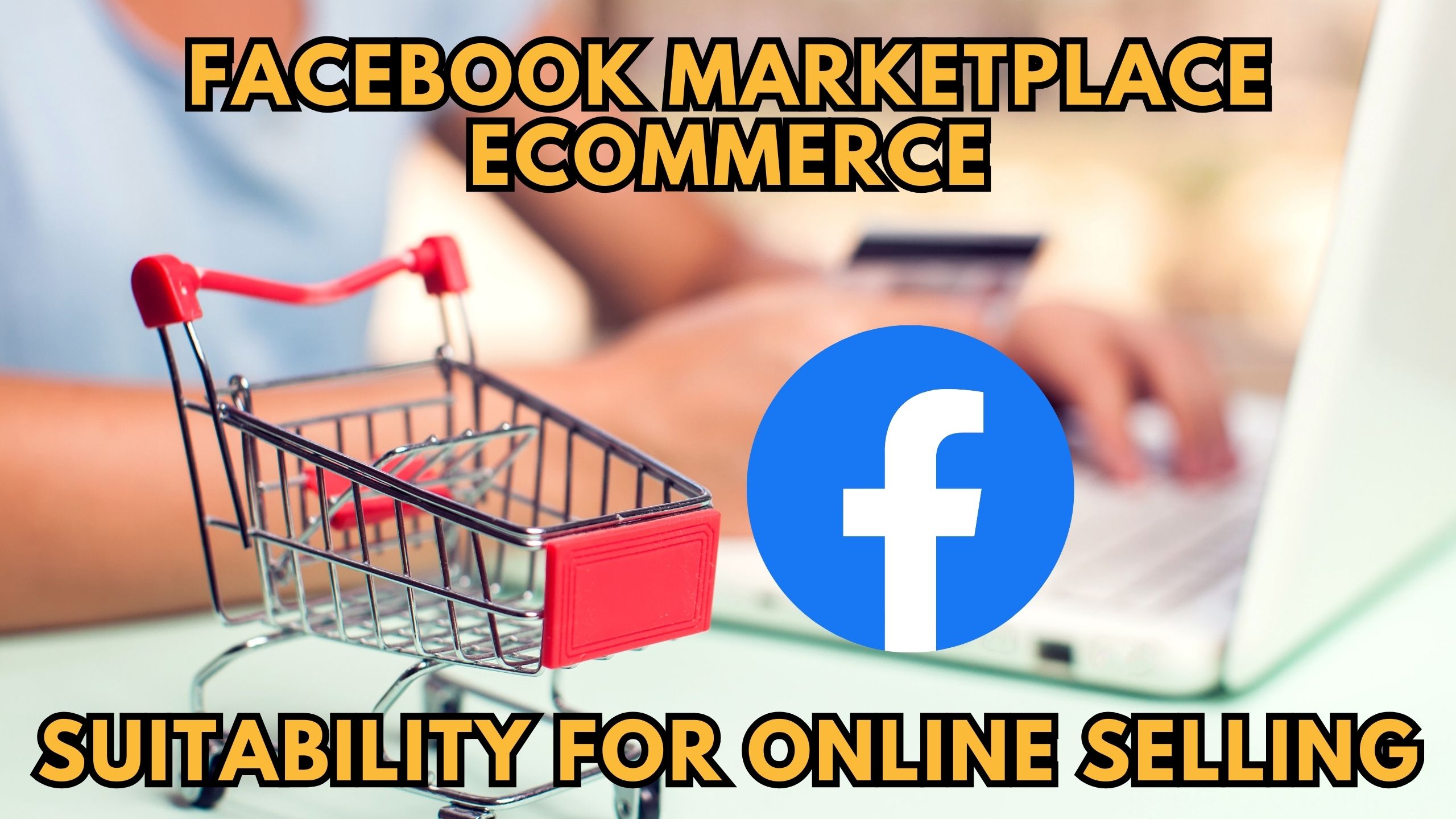Facebook Marketplace Ecommerce: Suitability for Online Selling


Facebook Marketplace Ecommerce: Suitability for Online Selling
In the dynamic landscape of ecommerce, Facebook Marketplace has emerged as a prominent platform for online selling, offering businesses a unique avenue to connect with potential customers. This blog endeavors to thoroughly explore the suitability of Facebook Marketplace for ecommerce, shedding light on its features, advantages, and how businesses can leverage it effectively.
1. Tapping into a Massive User Base
Facebook Marketplace boasts a vast user base, providing businesses with an extensive audience for their products. With over 2.8 billion monthly active users on Facebook, the potential reach for businesses is unparalleled. By strategically positioning products on Facebook Marketplace, businesses can tap into a diverse demographic, increasing the visibility and reach of their ecommerce endeavors.
Leveraging Facebook Marketplace allows businesses to not only access a vast pool of potential customers but also benefit from the inherent social nature of the platform. Users can share listings with friends, comment on products, and engage in discussions, creating a community around the brand.
2. Seamless Integration with Shopify
For ecommerce businesses seeking seamless integration, Shopify offers a robust solution. Beyond the convenience of linking Shopify stores with Facebook Marketplace, this integration provides a holistic ecommerce ecosystem. Businesses can manage inventory, track sales, and streamline the entire selling process without the need for complex technical expertise.
The seamless integration between Shopify and Facebook Marketplace ensures that businesses can maintain a consistent brand image across platforms. Any updates or changes made on the Shopify store are reflected automatically on Facebook Marketplace, creating a unified and professional online presence for the brand.
3. Enhancing Visibility with AdRoll
Visibility is crucial in ecommerce, and AdRoll plays a significant role in enhancing online presence. AdRoll’s advertising platform goes beyond traditional marketing strategies by employing targeted campaigns based on user behavior. This sophisticated approach allows businesses to not only increase traffic to their Facebook Marketplace listings but also ensures that the right audience is reached.
Moreover, the analytics and reporting features provided by AdRoll empower businesses to measure the effectiveness of their campaigns. By understanding which strategies resonate best with their audience, businesses can refine their marketing efforts, optimizing both visibility and return on investment.
4. Managing Finances with QuickBooks Commerce
Efficient financial management is integral to ecommerce success, and QuickBooks Commerce offers a comprehensive solution. By seamlessly integrating with Facebook Marketplace, QuickBooks Commerce allows businesses to manage their finances with precision. From tracking sales and monitoring expenses to inventory management, this tool ensures that businesses have a real-time understanding of their financial health.
The integration between QuickBooks Commerce and Facebook Marketplace also aids in the creation of detailed financial reports. These reports provide valuable insights into the profitability of different products, allowing businesses to make data-driven decisions for their ecommerce strategy.
5. Customer Relationship Management with Salesforce Commerce Cloud
Building and nurturing customer relationships is a key aspect of ecommerce, and Salesforce Commerce Cloud facilitates effective customer relationship management. The integration with Facebook Marketplace allows businesses to deliver personalized experiences, understand customer preferences, and foster long-term relationships, contributing to sustained ecommerce success.
Furthermore, Salesforce Commerce Cloud’s advanced analytics capabilities enable businesses to gain deep insights into customer behavior. By understanding purchasing patterns and preferences, businesses can tailor their offerings, enhancing the overall customer experience and building a loyal customer base.
Conclusion: Unlocking the Potential of Facebook Marketplace
In conclusion, Facebook Marketplace offers a viable and fruitful platform for ecommerce ventures. The combination of its massive user base, seamless integration with platforms like Shopify, tools for enhancing visibility and financial management, and advanced customer relationship management features makes it an invaluable asset for businesses aiming to thrive in the competitive ecommerce landscape.
Unlock Ecommerce Success with Subscribed.fyi
Empower your ecommerce journey with Subscribed.fyi, the ultimate solution for managing your SaaS stack. Sign up to unlock exclusive deals, streamline subscription management, and gain insights that propel your ecommerce strategy to new heights.
Relevant Links:








